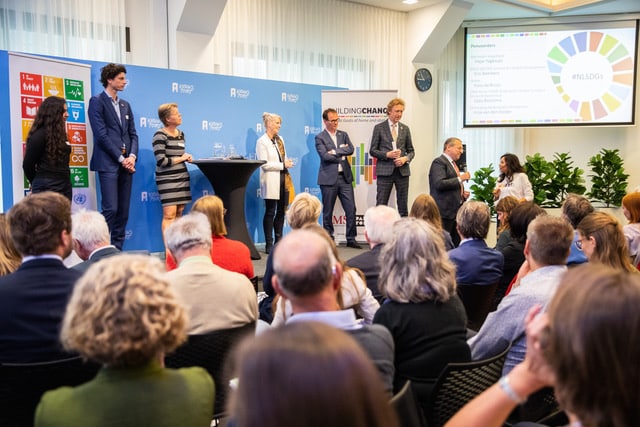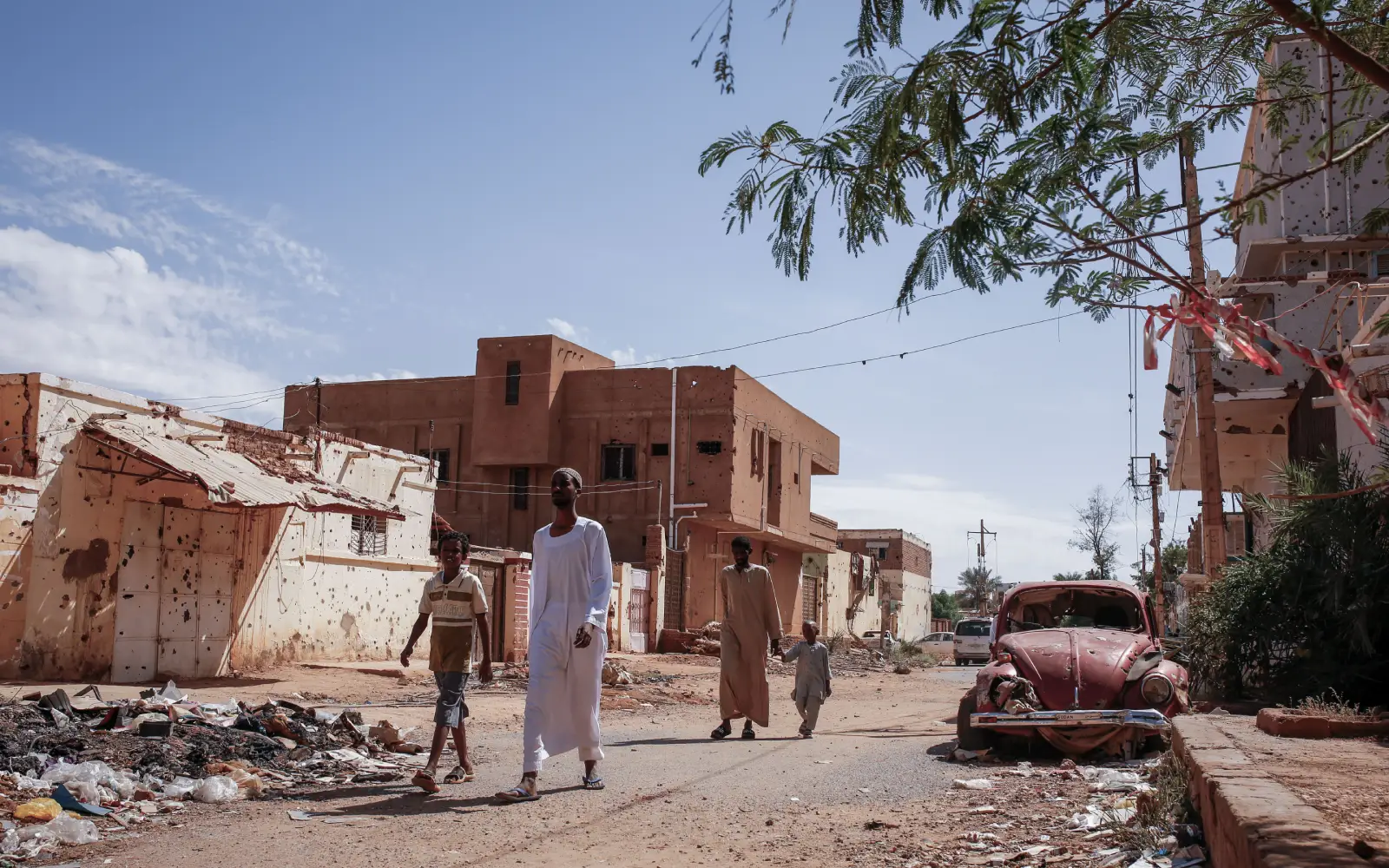Every year on the third Wednesday of May, ministries are held accountable to the House of Representatives: Accountability Day. Ministers present reports showing what the government has achieved in the past year and how plans have been implemented. On this day, two important documents around the Sustainable Development Goals (SDGs) are also performed by default: the CBS Report 'Monitor Broad Prosperity & SDGs 2019' and the 'Third Dutch SDG Report - Netherlands develops sustainably'. On 16 May, Building Change, the SDG Charter and a large group of visitors reflected on the published papers during "How sustainable is our prosperity?".
Monitor Broad Prosperity & SDGs
Until a few years ago, it was common to measure national prosperity solely by gross domestic product (GDP), but actual broad prosperity encompasses much more than economy and income. With the report 'Monitor Broad Prosperity & SDGs 2019', CBS not only looks at prosperity "Here and Now", but also at the extent to which this prosperity may put pressure on future generations or on other countries. The document also looks at the Netherlands' progress and European position when it comes to the various indicators of the 17 Sustainable Development Goals.
Third Dutch SDG Report
In the 'Third Dutch SDG Report', the central government, decentralised authorities, business and financial institutions, civil society, knowledge institutions and young people reflect on the progress of the SDGs within the Netherlands. As Building Change (a partnership of Partos, Woord en Daad and FMS), we were allowed to gather input from civil society for this purpose. It highlighted the need for a coherent Dutch strategy for implementation of the SDGs. In addition, civil society drew attention to the disadvantaged position of women and girls and the Dutch footprint worldwide.
"How sustainable is our prosperity?"
At the meeting on 16 May in Nieuwspoort, more than 200 stakeholders reflected on the reports presented. There was room for interaction and debate, listening to and responding to each other's critical points. We also looked together at opportunities for the future.
First of all, Jan-Pieter Smits presented the CBS report. This report shows a remarkable contrast between the SDGs on which the Netherlands performs well and poorly. For instance, compared to the other 27 EU member states, the Netherlands scores well on SDG 1 (end poverty) and the SDGs covering the topics of knowledge and innovation, social cohesion and inequality.
Lots of room for improvement
However, it was also clear that there is still a lot of room for improvement on other SDGs. On the climate and energy theme, for instance, the Netherlands scores downright poorly. We are very behind on SDG 7 (affordable and sustainable energy), SDG 13 (climate action), SDG 14 (life in water) and SDG 15 (life on land). According to Smits, there is still a huge potential for growth. Bart Romijn (Partos) was also critical of current Dutch policy: 'There is a lot of limping, fortunately steps are being taken, such as the introduction of the SDG key and commitment to renewable energy, but the leap is yet to come'.
The SDG test
Romijn's SDG test is used to test new policies, laws and regulations against the SDGs, with an additional focus on the effects of new policies on gender and developing countries. The latter remains very important, as the effects of our actions on other countries and future generations are still often negative. Sandra Phlippen (ABN AMRO) also indicated during the meeting that it is a painful reality that successes on one of the goals can have a negative impact on another goal or country.
It was a valuable meeting, where attendees showed a lot of knowledge and drive. Now it is time, using the published reports and the new SDG test, to look at the opportunities ahead. The Netherlands must push even harder for coherent implementation of the SDGs!
Written by: Jaël Voskamp
Photo: © Roos Trommelen





